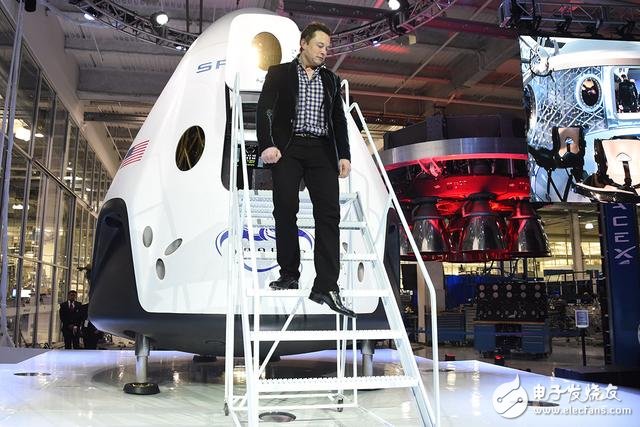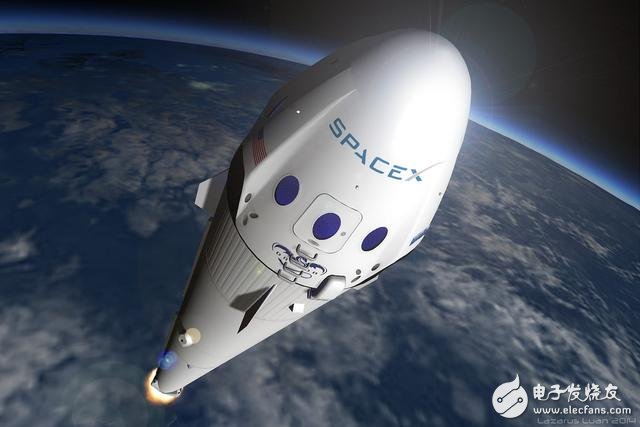This year's Valentine's Day may not be an ordinary Valentine's Day. On February 14, Silicon Valley "Iron Man" Musk plans to use its own commercial space exploration technology company SpaceX to launch deadly superbugs into space orbit.
This is not to use this superbug to destroy space, but to send the bacteria to the International Space Station (ISS) in a microgravity environment for experiments.
This superbug is known as methicillin-resistant Staphylococcus aureus, also known as MRSA. It can cause infections that are very frequent and difficult for patients to treat. The key point is that the germ is rapidly becoming resistant to most antibiotics. What SpaceX wants to do this time is to hope that space travel can change this situation. After the launch is successful, MRSA will experiment with near zero gravity to see if weight loss affects the gene and mutation rate of the pathogen.
According to Forbes, the study was sponsored by the National Aeronautics and Space Administration (NASA) and the American Space Science Promotion Center (CASIS). At that time, SpaceX will use its Falcon 9 rocket to launch the bacteria into space and allow it to be tested in the National Laboratory of the International Space Station.

The specific experimental equipment and team are under the responsibility of Nanobiosym. The company offers XPRIZE technology, the world's first mobile “Tri-recorder†device that can detect any disease in real time with genetic fingerprints and is 10 times cheaper than current diagnostic tests on the market.

Anita Goel, chairman and CEO of Nanobiosym, believes that near-zero gravity environments can cause MRSA to accelerate variability. In other words, humans can press the "fast forward" button to obtain potential mutation patterns that have not been discovered on Earth.
"Our work at the Microgravity International Space Station is very practical and basic. We hope to promote the development of personalized and precise medicine, and we can better predict the drug resistance of germs and find better therapeutic drugs. On the basic science level, I am keen to test my hypothesis 20 years ago that the environment can profoundly affect the flow of information in the genome and transcriptome," Gore said.
At this stage, the research team does not know how the MRSA will react to the new environment. However, according to previous experience in space bacteria research, the environment will lead to the above-mentioned genetic mutations and population trends, but there will be differences in speed.
The reason is simple: in the space environment, some proteins related to metabolism become more active, and low-dose spatial radiation can also alter the activity of certain genes.
If the experiment is successful, this will have a huge impact on drug development. Because current antibacterial therapies are usually ineffective, and researchers can't know the resistance of the bacteria in advance, only in real-time environments or in later reviews.
Gore and her team hope that the unique environment of space allows them to observe the activity of MRSA as a reference for possible changes on Earth. These data can be used for advanced drug development and help researchers on Earth find effective ways to fight.
A new rule from the Drug Enforcement Administration (DEA) threatens to upend the American hemp industry, and could even result in criminal prosecutions for manufacturers of CBD and delta-8 THC products.
The DEA says the [interim final rule," issued Aug. 20, is simply a matter of adjusting its own regulations to account for changes to the Controlled Substances Act that were mandated by the 2018 Farm Bill (or Agricultural Improvement Act) that legalized hemp and CBD production. The new rule [merely conforms DEA`s regulations to the statutory amendments to the CSA that have already taken effect," says the agency. The new rule doesn`t break any ground, according to the DEA.
But many experts on cannabis and hemp law say the DEA rule creates a potential pathway the law enforcement agency could use to prosecute hemp processors and producers of CBD (cannabidiol) and delta-8 THC (or Δ8THC) products. There are two issues: partially processed CBD, and [synthetically derived" delta-8 THC.
Cbd Pod System Oem,Cbd Vape Pod Oem,Best Cbd Pod System,Cbd Pod System
Shenzhen MASON VAP Technology Co., Ltd. , https://www.masonvap.com